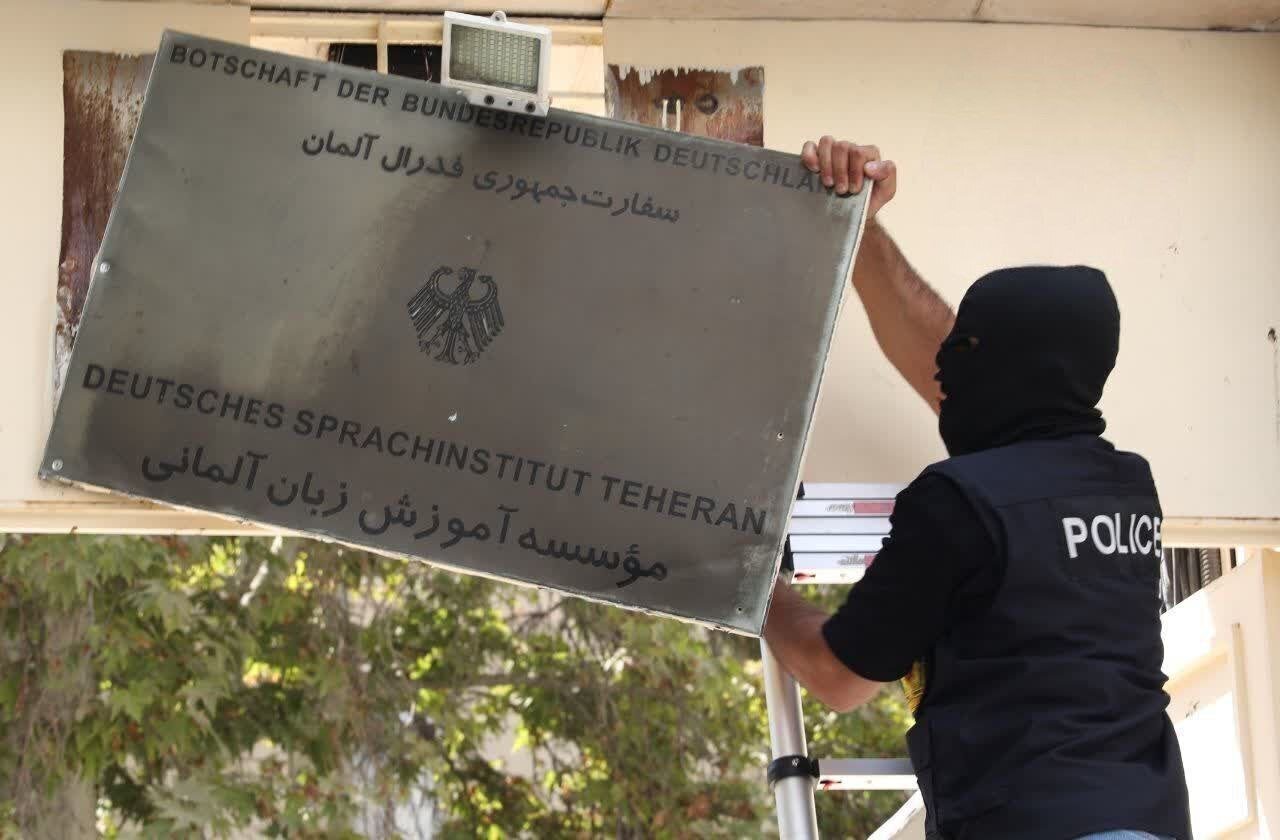TEHRAN – Iran's judiciary has shut down two branches of a language center linked to Germany, after the German-owned Goethe Institute committed several illegal activities including financial fraud.
Iranian authorities have stated that investigations into other German-affiliated centers in Iran are ongoing.
Images published by the Iranian media showed security forces removing the banner of the German language institute in Tehran, which operates under the German embassy's auspices. The Iranian media reported that other Germany-related centers are also under scrutiny, with further investigations continuing.
In response to these developments, the German Foreign Ministry summoned Iran's ambassador in Berlin, condemning what they described as Iran's unacceptable treatment of a German language institute in Tehran.
The move comes after the German government ordered the closure of the Islamic Centre Hamburg and its affiliated organizations throughout the country in July, accusing them of “promoting extremism and radical Islamic ideology.” German police conducted raids on 53 properties associated with the IZH across eight states, leading to the confiscation of assets and the shutdown of four mosques. The ban also extended to IZH subgroups in Frankfurt, Munich, and Berlin.
German Interior Minister Nancy Faeser announced the ban on the IZH, stating that the organization was "pursuing radical Islamist objectives" and was undermining the German state by promoting an extremist ideology. Faeser specifically mentioned that the IZH's activities opposed fundamental values such as human dignity, women's rights, an independent judiciary, and democratic governance.
As a response, Iran's acting foreign minister condemned Germany's decision to shut down the IZH, labeling the move as a boon for extremists, violent organizations, and groups that support terrorism globally.
“The decision by German judicial and law enforcement authorities on inspection of premises affiliated to IZH, which is among the oldest Islamic centers [in the country] with a history of 70 years and a precious heritage of late top Shia authority Grand Ayatollah [Hossein] Boroujerdi, is an unjustified move and flouts all principles of freedom of religion and thought,” Ali Baqeri Kani wrote on his X account.
The IZH, which manages the Imam Ali Mosque (commonly known as the Blue Mosque) in Hamburg—one of Germany's oldest mosques—has faced accusations of supporting Hezbollah and spreading “antisemitic” rhetoric. Hezbollah, the Lebanese Resistance group known for repelling Israeli forces in 2000 and 2006, was designated as a terrorist organization by Germany in 2020.
In a related crackdown last November, German authorities raided 55 properties linked to the IZH, seizing materials that allegedly revealed the organization's "highly conspiratorial" operations. These materials reportedly suggested that the IZH was attempting to conceal its political aims, though the German authorities did not disclose specific details about the evidence obtained.
Despite these serious allegations, the Islamic Centre Hamburg consistently denied any involvement in violence or extremism, advocating instead for peace, tolerance, and interfaith dialogue.
The IZH and the Blue Mosque in Hamburg served as a central religious hub for Shia Muslims from various backgrounds. For decades, the center hosted regular prayer services and numerous religious festivals. It also offers educational activities, including Islamic religious instruction for children and language classes in Arabic, Persian, and German.


No comments:
Post a Comment